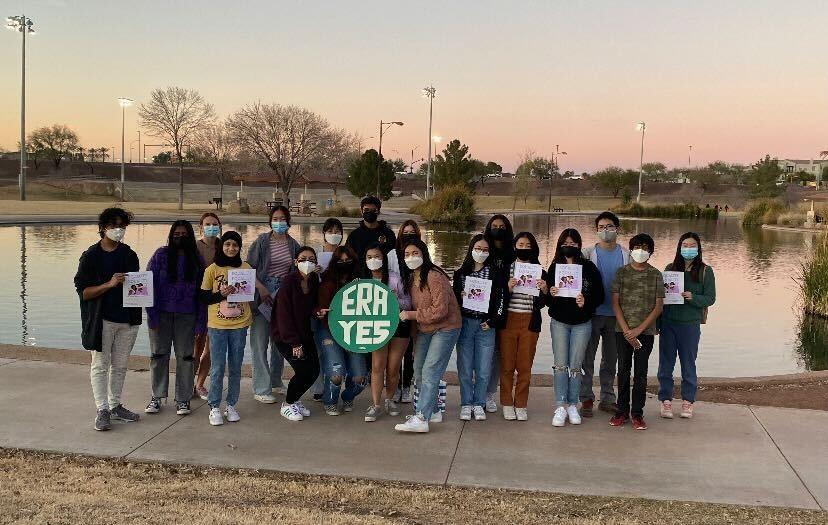Many college-aged students have not put too much thought into what the Equal Rights Amendment is. A lot vaguely understand that it works to ensure gender equality in the United States constitution, but do not think about how it can affect universities and the legal rights of college students. The Equal Rights Amendment is a proposed amendment to the Constitution that guarantees equal legal rights for Americans regardless of sex. It is vital that college students and universities across the country recognize the significance and take steps to implement the ERA because it affects all genders and marginalized groups.
On Jan. 27, Reps. Jackie Speier, D-Calif., and Carolyn Maloney, D-N.Y., presented HJ. Res. 28, a resolution to the House recognizing that the Equal Rights Amendment has met all legal conditions to be recognized as the 28th Amendment to the Constitution.
“It is long past time to cement gender equality in our nation’s most important text, the Constitution, once and for all. With the ERA, we secure equality under the law for women and all marginalized genders,” stated Congresswoman Maloney. The inequality woman and marginalized genders face on a day-to-day basis cannot be tolerated, and both college students and the University of Arizona need to recognize that.
RELATED: From classroom to courtroom
We as students need to push ourselves and the University of Arizona to fight for the ERA’s guarantee of gender equality and stand up for anti-discrimination policies that could make the UA a more equitable place. Women and people of all genders are continuously facing a plethora of challenges due to a lack of legal protections — but the acknowledgment of equal rights in our constitution and on our campus should not be one of them.
Shira Griffith, the state director of Generation Ratify California, a youth-led movement to ratify the ERA, states that colleges across the country should, “update the Title IX policies and other equity policies to reflect the ERA.”
Not only should the UA and colleges across the country support the ERA, but they should also begin to take steps to ensure that the ERA is reflected and required in education. If the UA were to enforce and support the ERA, it would greatly alter and benefit students by changing how public institutions deal with Title IX processes and regulations. Title IX prevents discrimination on the basis of sex within education, however there are many loopholes within Title IX that the ERA can close, benefiting the lives of women and marginalized genders across campus.
If the UA and universities across the country choose to implement the ERA, “colleges will have to update their equity policies to reflect the much-needed changes in this country,” Griffith reaffirms. This can cause major changes that would ensure survivors receive just treatment, discriminatory practices and policies are eliminated and a clear judicial standard for every issue relating to discrimination based on sex is addressed.
RELATED: OPINION: Has the Student Union gone overboard with their prices?
Dianne Post, the head of the ERA Task Force in Arizona states that there is, “nothing wrong with a state school supporting a national constitutional amendment,” and that the impact of support from universities could put, “pressure on the legislature to get this done.”
We need to urge the UA to apply the ERA to provide equal rights to all students on campus. If you are a student who wants to get involved, Post said that students can advocate through educating about the importance of the ERA, lobbying your own state legislators and using the ERA to argue when faced with discrimination.
I insist that all students remain aware of this critical piece of legislation. It affects every single one of us. If we want to begin to care about equal and accessible education for all at the UA, we need to include in our discussions the importance and need for the ERA. We need to drive the UA to do what is right and that is reflect the ERA in all its policies and practices.
Follow Sophia Hammer on Twitter

Sophia is a freshman majoring in family studies & human development and global studies. She loves to write on pieces concerning politics that affect the Tucson and UA community.










